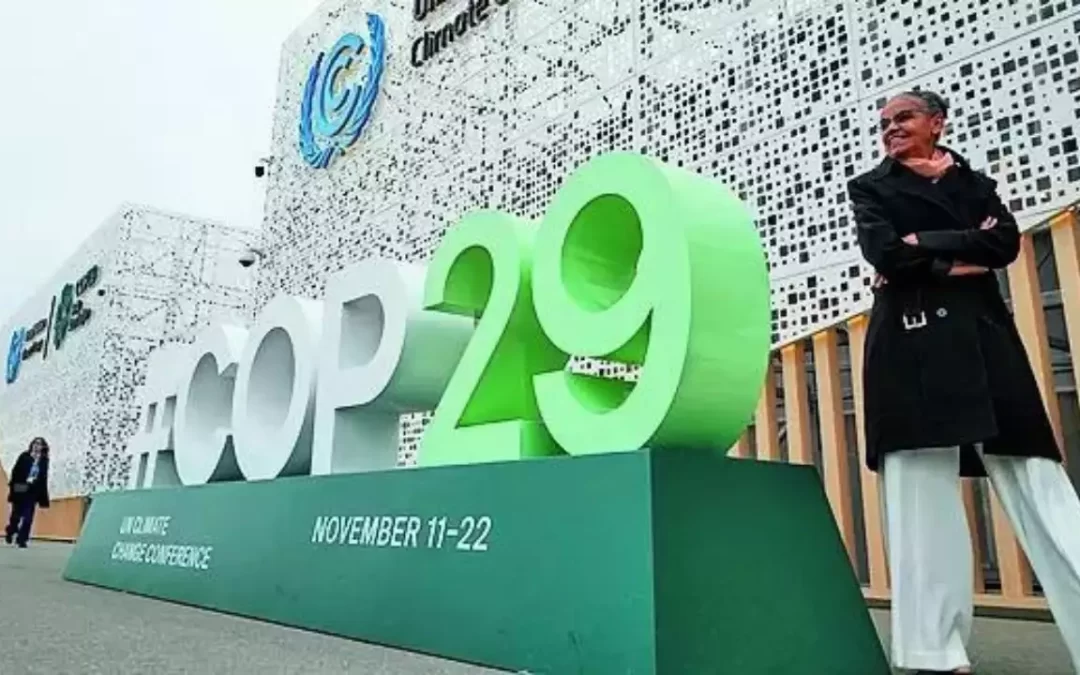BAKU/NEW DELHI: The 29th UN Climate Change Conference (COP29) concluded on Sunday, with the climate finance agreement emerging as a major point of contention. The deal saw rich nations pledging to mobilize just $300 billion per year by 2035 for developing countries, a far cry from the public finance commitments that many had hoped for. The sum, which would come from both public and private sources, was widely seen as insufficient by India, which rejected the outcome, calling it “nothing more than an optical illusion.”
While the $300 billion is part of a broader $1.3 trillion per year target from all public and private sources by 2035—intended to help developing nations meet their climate goals—India’s negotiators expressed deep dissatisfaction with the proposed sum. India argued that this amount would not address the urgency of the climate crisis, particularly given the current projections for 2030, which call for an annual funding requirement of $1.3 trillion.
“The goal is too little, too distant,” said Chandni Raina, India’s chief negotiator, in a speech that garnered wide applause from other developing nations. “2035 is too far away. By 2030, we need to be mobilizing $1.3 trillion per year, not this abysmally poor and paltry sum. We cannot accept it.”
India’s rejection, alongside support from several other Global South countries, underscores growing frustration over what many see as a lack of commitment from developed nations to fund the necessary climate actions in poorer countries. The lack of progress in addressing climate finance, which is seen as a key pillar of international climate negotiations, is expected to have significant implications for global climate cooperation moving forward.
The deal also sparked controversy over procedural issues. India had asked to make a formal statement before the agreement was adopted, but the COP29 President, Mukhtar Babayev, swiftly gavelled the decision through, prompting India to express disappointment. Raina criticized what she described as a “stage-managed” process, voicing concern that such actions undermine the credibility of the talks.
In a broader context, the weak finance outcome, coupled with India’s rejection, could influence the upcoming updates to countries’ Nationally Determined Contributions (NDCs) in 2025. India’s position is seen as a rallying point for the Global South, which continues to demand greater equity in climate finance.
R.R. Rashmi, Distinguished Fellow at TERI and India’s former lead negotiator, emphasized the significance of India’s stance, noting that it marks a rare unified front among developing nations. “India and many others in the Global South have clearly shown a common, united stand. This could reshape the climate negotiations in the coming years.”
India’s concerns also extend beyond finance, with rising trade barriers from developed countries adding to the challenges. The European Union’s Carbon Border Adjustment Mechanism (CBAM), which will impose tariffs on carbon-intensive goods like steel and cement, was specifically called out by Raina. “The Global South is being pushed to transition to low-carbon pathways at the cost of our growth,” she said, highlighting the economic difficulties of meeting climate goals under such external pressures.
The CBAM, set to take effect in 2026, could have significant trade implications for countries like India and China, potentially exacerbating existing tensions over climate-related trade barriers.
Global Finance Goal: $1.3 trillion per year by 2035 from public and private sources for developing countries to implement climate actions.
Core Finance Target: Developed nations to mobilize $300 billion annually by 2035.
Donor Contributions: Developing nations are encouraged to contribute voluntarily, including through South-South cooperation.
Adaptation Funding: The deal aims to at least triple the annual funding for adaptation measures by 2030 compared to 2022 levels.
Review Mechanism: A roadmap from Baku to COP30 in Brazil to assess progress towards the $1.3 trillion goal, with interim reviews scheduled for 2026 and 2027.






